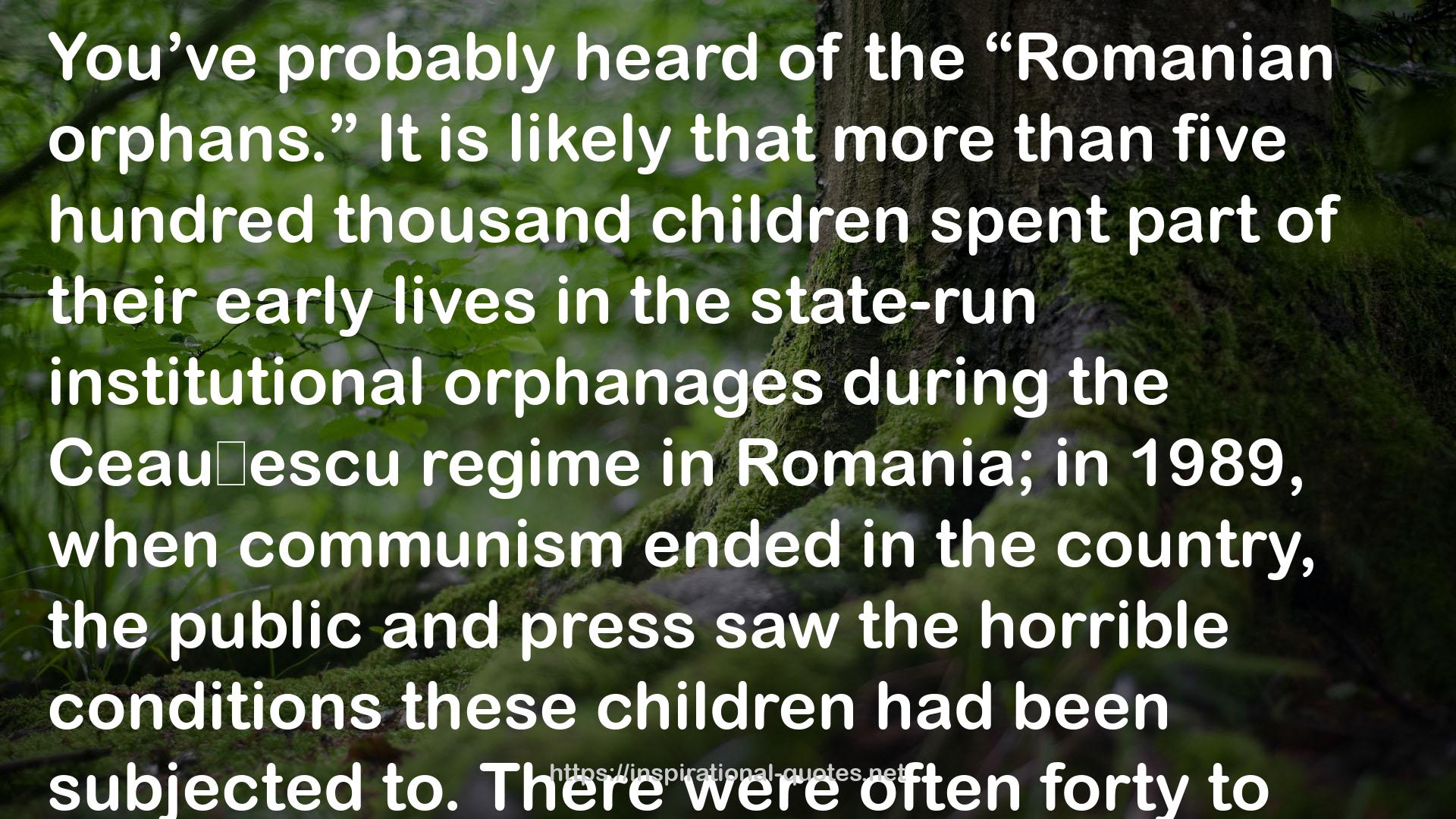" You’ve probably heard of the “Romanian orphans.” It is likely that more than five hundred thousand children spent part of their early lives in the state-run institutional orphanages during the Ceauşescu regime in Romania; in 1989, when communism ended in the country, the public and press saw the horrible conditions these children had been subjected to. There were often forty to sixty babies or toddlers in a single large room, each in their own crib all day long, with only one or two caregivers rotating among them over the course of a twelve-hour shift. The children suffered deprivation, malnutrition, abuse, and more. Even after being removed from the institutions, they grew up with a range of deficits. Some had low IQs, others couldn’t walk, most had major problems forming and maintaining relationships. I worked with many children removed from these orphanages. In general, the longer the child was there, the longer the deprivation, the more serious the problems. Ironically, in some overcrowded institutions, children who had to share cribs ultimately did better. The Romanian orphans are now adults; for most of them, problems persist. As a group they are much more likely to be unemployed, have mental and physical health problems, and have difficulties with relationships. "
― Bruce D. Perry , What Happened To You?: Conversations on Trauma, Resilience, and Healing
